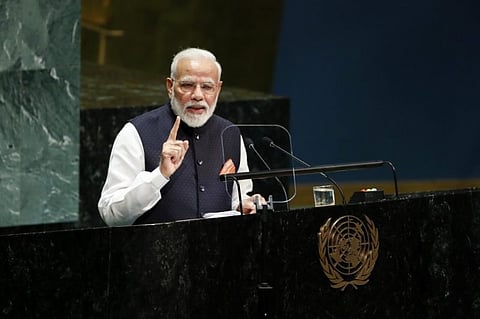
- Home
- Live Blog
- Breaking News
- Top Headlines
- Cities
- NE News
- Sentinel Media
- Sports
- Education
- Jobs

United Nations: India’s strategy of soaring high to take on global issues paid its diplomatic dividends in 2019 with recognition as a leader in combating climate change and a victory in the battle against terrorism.
It also received the unanimous endorsement of the Asia Pacific Group for election next year to a non-permanent seat on the Security Council starting in 2021. Outlining India’s approach, Permanent Representative Syed Akbaruddin said, “They may stoop low, we soar high” — a reference to Pakistan’s unidimensional obsession of targeting India at the UN.
Soaring high, India took a leading role in combating international terrorism, in the fight against climate change, in pressing for making peacekeeping operations more effective, and in international development efforts.
After nearly a decade of efforts, the Security Council’s sanctions panel in-charge of the Islamic terrorist groups declared in May Jaish-e-Mohammad (JeM) chief Masood Azhar an international terrorist after China under international pressure withdrew its protective mantle over the Pakistan-based terror mastermind.
Akbaruddin called it a “significant outcome” for India. JeM is considered responsible for the Pulwama attack in February that killed 40 Indian security personnel in Kashmir, the Pathankot air force base attack in 2016 and the terrorist strike on the Indian Parliament in 2001.
Pakistan’s two attempts to bring up the Kashmir issue at the Security Council with China’s help failed. The first in August led to an informal briefing that did not even produce a press statement from the Council’s President Joanna Wronecka because of opposition from most members.
The second attempt in December failed when China withdrew a request it had made for a consultation on Kashmir after it could not find any interest among other members.
Attempts by Pakistan to bring up the Kashmir issue at the General Assembly also failed to get traction. Of the 193 members, only Turkey, Malaysia and China picked up its call.
But even Beijing’s references to the Kashmir issue was relatively mild — it made sure to refer to bilateral agreements, a nod to the Simla Agreement that is the bedrock of India’s approach to relations with Pakistan and to the Kashmir issue. (IANS)